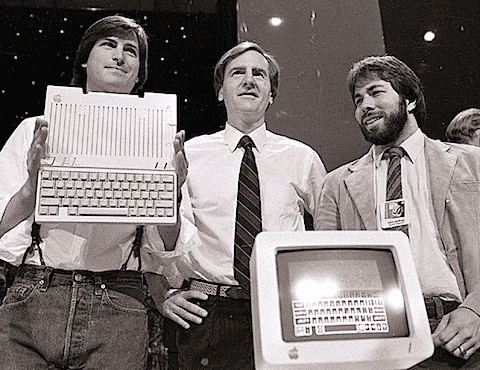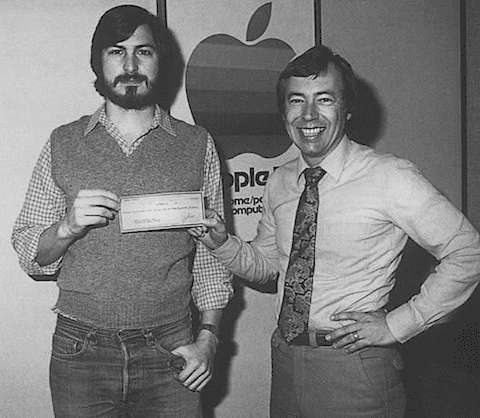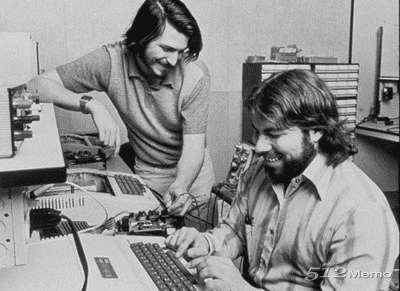
John Sculley CEO of Apple between 1983 and 1993 was in charge of firing Steve Jobs in 1986 and the Cupertino company lost its way. Sales declined and the company was one step away from disappearing before Steve Jobs' return in 1997.
The current CEO of Apple took back the company he founded in a garage and has made it a true icon of technology. The key to its success comes in the words of John Sculley:
“There are a lot of product development and marketing lessons that I learned working with Steve early on. It's amazing how he still holds onto the same principles after so many years. I have not seen changes in his principles, except that he has become better and better at them. "



KEEP READING the rest after the jump.
The eleven principles of Steve Jobs, according to John Sculley:
1.- Excellent design: “Steve had the idea that you have to start design from the user experience point of view. We studied Italian designers (car designers). At the time, no one was doing that in Silicon Valley. What many people don't recognize is that Apple didn't just make computers. Apart from machines, Apple worked on product design and marketing.
2.- User experience: "It is part of an end-to-end system: it is also in the factory, the supply chain, marketing, the stores."
3.- Don't use 'focus groups': "Steve believed that showing someone a prototype would not give the person any indication of what the final product would look like, the leap between one thing and another was too great."
4.- Vision: “I believed that computers would eventually be consumer products. It was a crazy idea in the early 80's, because people thought that PCs were small versions of big computers. This was how IBM saw it. But Steve was thinking of something completely different. I believed that the computer was going to change the world.
5.- Minimalism: "The most important decision is not in what you do, but in what you decide not to do."
6.- Hire the best: “Steve has the ability to find the best of the best, the smartest people he felt were out there. He was very charismatic.
7.- Pay attention to the details: "On one level Steve is working on the big concept of 'changing the world.' On another level he is working on the details of what it really costs to build a product and design the software, hardware, systems and applications, the peripherals… he is firmly involved in advertising, design, everything.
8.- Small work teams: Steve did not respect large organizations. I felt they were bureaucratic and inefficient. Steve had a rule that there could never be more than 100 people on the Mac team. So if you wanted to hire someone, you had to fire someone. "
9.- Refuse bad work: “It's like an artist's workshop and Steve is the teacher who walks around, looks at the works and judges them. In many cases those trials were to reject something.
10.- Perfection: «What differentiated Steve Jobs from other people like Bill Gates. Bill was brilliant too, but he wasn't interested in fine taste. Bill was interested in being able to dominate the market. He would throw whatever he had to own that space. Steve would never do that. Steve believed in perfection.
11.- Systematic thinking: “The iPod is a perfect example of Steve's methodology of starting with the user and looking at the whole system. It was always a start-to-finish system with Steve. He was not a designer, but a great systems thinker.
Source: digitaljournalist.com
Are you a user of Facebook and you still haven't joined our page? You can join here if you want, just press 